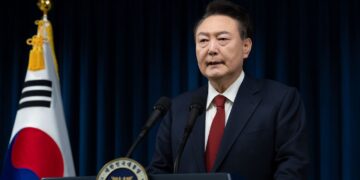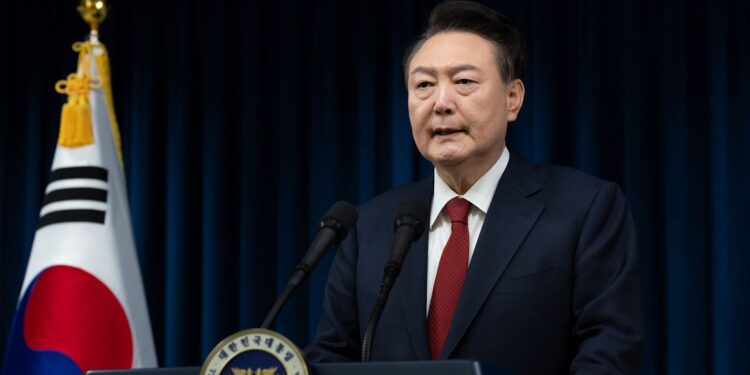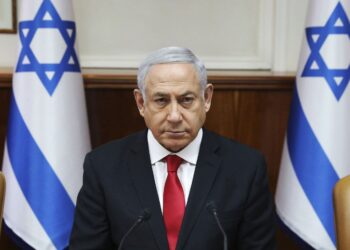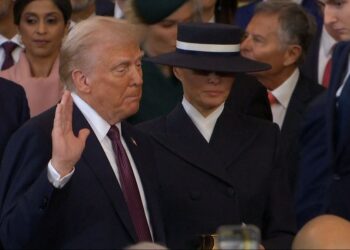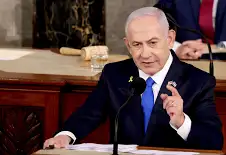Crisis in South Korea: Parliament Approves Arrest of President Yoon and Seven Officials
South Korea’s National Assembly has taken a dramatic step, approving a motion calling for the immediate arrest of President Yoon Suk-yeol and seven senior officials. The decision follows the controversial imposition of martial law on December 3, marking a new chapter in the country’s escalating political crisis.
Martial Law and Public Backlash
On December 3, the South Korean government declared martial law, citing large-scale protests and security concerns. However, this move has been heavily criticized by opposition parties and civil society groups, who see it as a threat to democracy. Critics argue that the declaration was a strategy by the government to consolidate its power amid mounting public discontent.
The Parliamentary Motion
The National Assembly’s motion alleges that the martial law declaration violates constitutional principles. It calls for the immediate detention of President Yoon and seven officials involved in the process. The motion, backed by opposition-dominated lawmakers, was swiftly passed, intensifying the political turmoil.
Public Reaction
The developments have sharply divided public opinion. While some believe martial law is necessary for maintaining order, others view it as an authoritarian move against democratic freedoms. Protests in the streets of major cities reflect the depth of the nation’s polarization.
International Reactions
The international community has expressed concern over the situation. Many countries have emphasized the importance of safeguarding democratic values in South Korea, warning that the arrests could spark further unrest and instability in the region.
What Happens Next?
The response from President Yoon and his administration remains uncertain. Whether the arrests will be carried out or the government will push back against the motion is a critical question that will shape the future of South Korea. Observers expect tensions to rise further as the crisis unfolds.
Conclusion
South Korea’s ongoing political crisis is not only reshaping the country’s internal dynamics but also impacting regional stability in Asia. The parliament’s decision marks a pivotal moment in the nation’s history and underscores the fragile balance between power and democracy.
Stay tuned as we provide updates on this rapidly evolving story.
